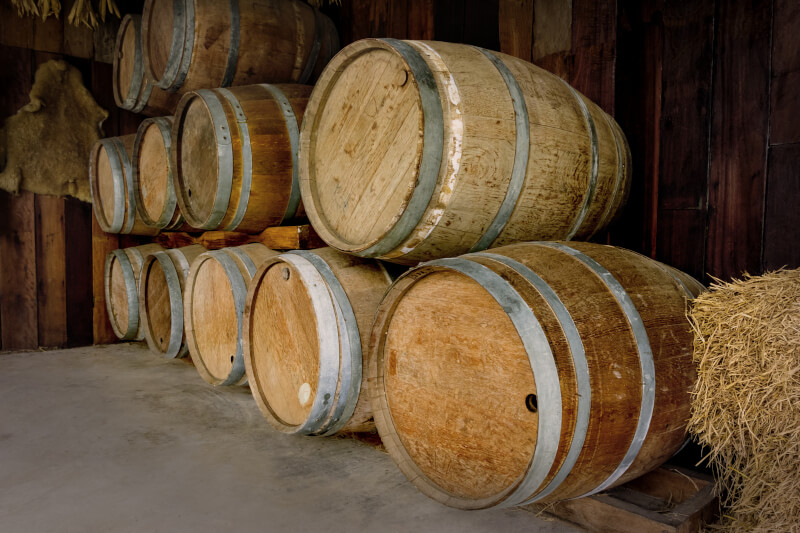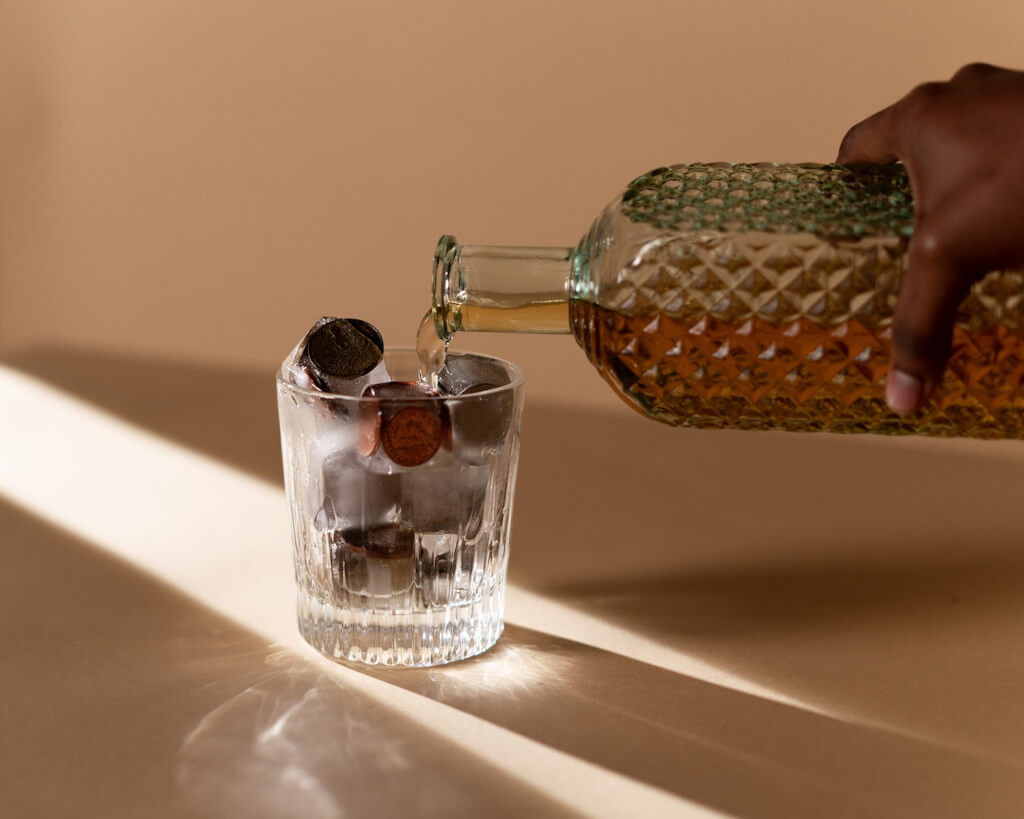Maybe you’ve found yourself in the whiskey section trying to persuade yourself that a $200 bottle is well worth it. How about that? Is it all for the show, or does it have some deeper meaning? To your relief, yes, you can rationalize that spending! The greater quality and more distinct flavors in more expensive whiskies are responsible for this perception. But what exactly sets some whiskies apart from others in terms of price?
The Qualities of a High-End Whiskey
Compared to lesser whiskies, the more expensive ones are typically older, of higher quality, and more scarce.
The Maturity and The Angel’s Share
Older whiskies command higher prices. But why does whiskey get more expensive as it ages?
The “Angel’s Share”
The term “Angel’s Share” refers to the alcohol that evaporates from older bottles of whiskey. whiskey is matured in wooden barrels, which are not airtight and often leak a little amount as they age. The more time a product spends in a barrel, the more it will evaporate.
The alcohol is “evaporating to the heavens,” therefore the procedure is called the Angel’s Share. whiskey is more costly since only approximately a third of the original volume survives by the point that it is bottled. Throughout this cycle, its rarity increases, which drives up its price. The cost of whiskey rises with its age and the angel’s share.
Production Reliability
Whiskey is made from grain, yeast, and water, but how these materials are combined and refined can vary greatly. This affects the whiskey’s overall taste and cost.
Temperature
The price of whiskey typically decreases when production speeds up. Whiskey can be aged faster at higher temperatures, lowering costs without affecting production. The costly whiskey is the exact opposite. It takes more time for premium whiskey to age and there is less of it produced due to lower temperatures.
The Water Quality
Most people overlook the role that water plays in the aging process of whiskey, but distilleries know full well that it can determine the final product’s quality. High-quality water is used in the production of expensive whiskey. In Japan, for instance, the water used by the best distilleries comes from snowmelt that has been filtered through granite. The more effort a distillery puts into sourcing high-quality water, the higher the cost of its end product will be.
Storage Expenses
whiskey with a higher price tag should be aged for longer. This implies that the cost of storing space must be covered for a much longer period than for less expensive whiskey. The end user is the one who pays this price.
Workmanship
Whiskey is made from wheat, yeast, and water, but these elements can be processed in a variety of ways. The price and quality of whiskey are both impacted by this.
Where You’re Buying Your Whiskey

The store from where you purchase your whiskey is another consideration. varied whiskies, or foreign whiskies, might have wildly varied attributes and flavors just because of where they were produced. Many whiskey drinkers, including those who favor Irish whiskey, insist on importing their liquor straight from the country of origin. Smaller distilleries might offer tastings so patrons can sample their wares before making a purchase. whiskey and other alcoholic beverages can be purchased wholesale from many locations. If you want to keep a lot of whiskey on hand, whether for entertaining or for regular use, this may be an excellent alternative.
Packaging
A Cartier bracelet is not packaged in a bag of plastic, and neither is a fine whiskey served in an unattractive bottle. Consumers (that’s you at the register) often end up footing the bill for expensive, yet visually appealing, packaging.
Rarity
This aspect is entirely consistent with standard economic theory. When demand rises and supply falls, prices rise and vice versa. A bottle of whiskey will have a higher price tag if it is a rare find. Rare whiskey is an excellent investment for collectors, who may recoup their money at auction.
Complex Tastes
Whiskey is an extremely nuanced drink. As you experiment with its myriad scents and aromas, you can’t help but think about the infinite permutations at your disposal. Finding a whiskey that complements your palate while also expanding your horizons via experimentation is a never-ending quest.
Health Values
Zinc, iron, vitamins B1 and B3, and B vitamins can all be found in whiskey. whiskey’s plant-based antioxidants are good for your brain and heart if you drink them every day. These antioxidants aid in keeping the brain’s chemistry in check. whiskey has been shown to significantly lower the risk of developing dementia and to halt the advancement of Alzheimer’s disease. Whiskey has been linked to a reduced risk of cardiovascular disease and stroke by reducing levels of “bad” LDL cholesterol in the blood.
Style of The Barrels

The price of whiskey can vary greatly depending on the kind of wood used to age it in the casks. For instance, some woods are naturally more permeable than others. This results in increased evaporation, which drives up the price of the whiskey, and gives it a distinctive woody flavor.
Investing In Whiskey Is a Smart Move
whiskey is quickly becoming a popular asset class among investors. Both the flavor and the historical significance of whiskey improve with age. If you have the patience to wait, you can sell a pricey bottle of scotch for considerably more than you paid for it. If you know what you’re doing, whiskey collecting can be a lucrative long-term investment.
What Accounts for Single Malt Whiskey’s Higher Price Tag Compared to Blended Whiskey?
You may have noticed that the price of a single malt is higher than that of a blended whiskey. This is because single malt takes so much longer to make and uses more expensive ingredients. Compared to other grains used to make blended whiskey, barley is more expensive. The same holds with whiskey; the longer it has been aged, the higher the price. The unique flavors of single malts have made them a popular choice. And when there is tremendous demand but insufficient supply, the price of a thing goes up.
The Price of Whiskey Is Directly Linked to Quality
The producers and distilleries incur substantial costs throughout the production of some whiskey, making it too expensive for consumers to purchase. They are also much more sought after because of their scarcity. The more expensive the whiskey, the better the return. Literally. Over time, it might increase your earnings at auctions. Both literally and figuratively, the pricey whiskey’s unique woody flavors will be a welcome treat for your taste buds.

